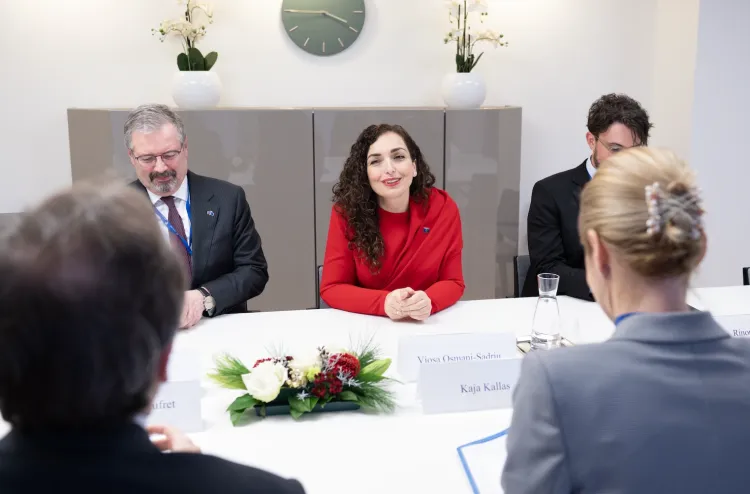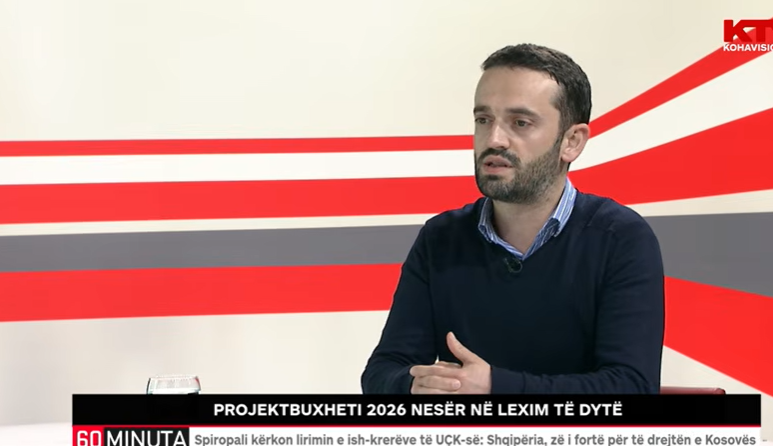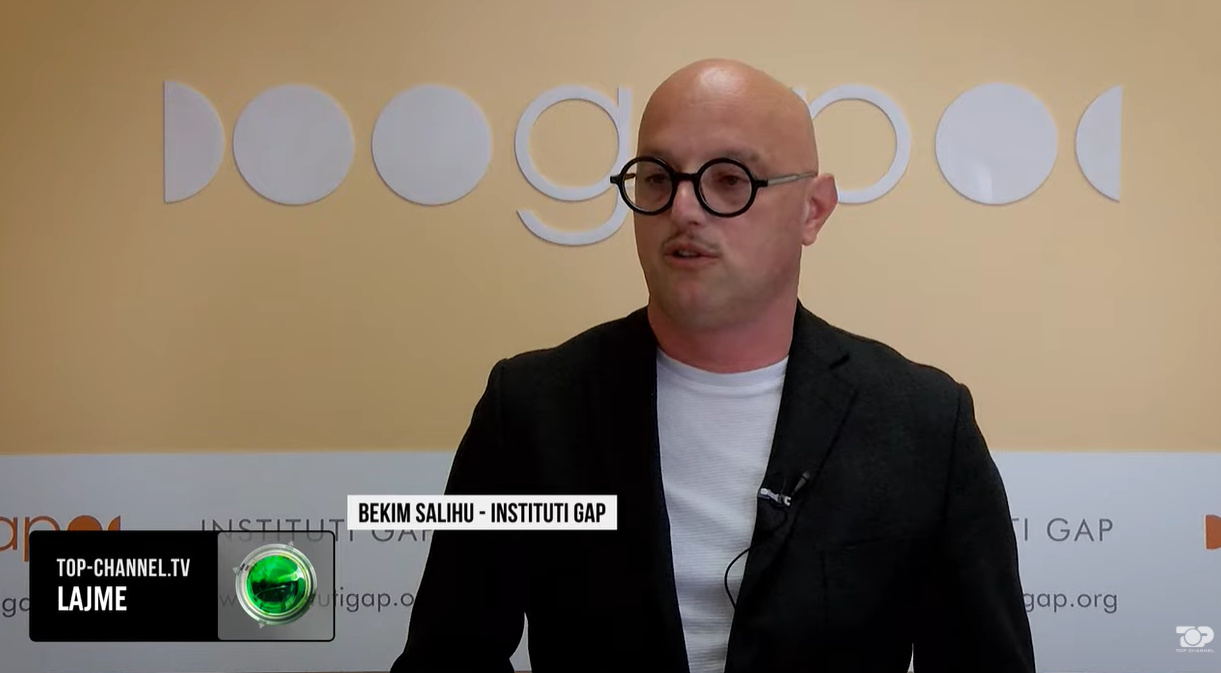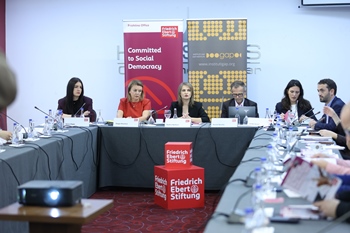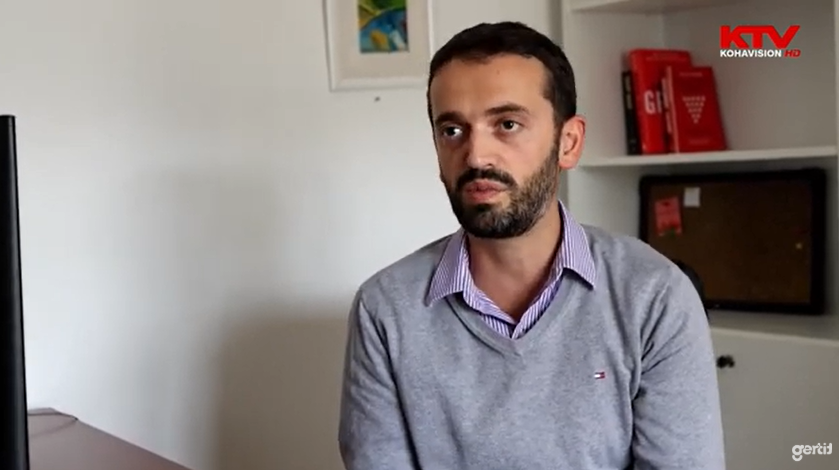GAP Institute published the report “Strengthening Financial Support for Women- and Minority-Owned Businesses in Kosovo”
24/10/2025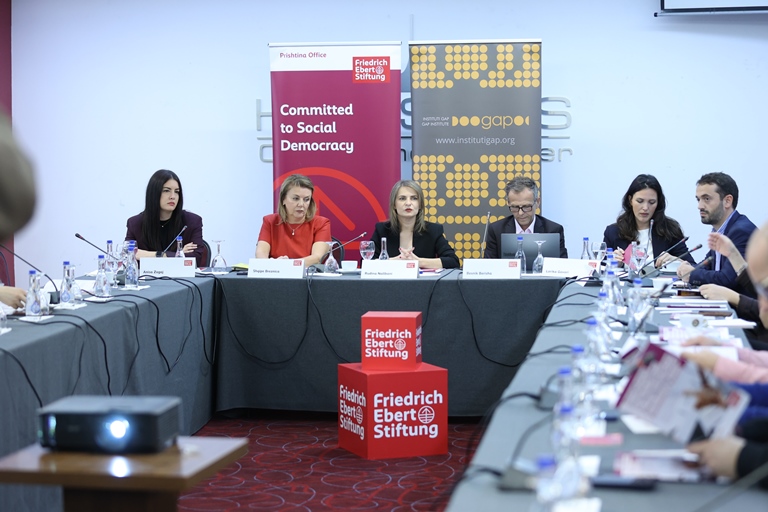
GAP Institute, in cooperation with Friedrich-Ebert-Stiftung (FES) Kosovo, held a roundtable discussion where the report “Strengthening Financial Support for Women- and Minority-Owned Businesses in Kosovo” was presented.
Blendi Hasaj, Executive Director of GAP Institute, spoke about the importance of research that provides accurate measurements of the level of support for businesses owned by women and minority communities, their challenges and absorptive capacities, as well as the ongoing work of GAP in this field. Rudina Nallbani-Hoxha, Program Manager at Friedrich-Ebert-Stiftung (FES), emphasized that the goal of this report is to provide an overview of how women- and minority-owned businesses in Kosovo are financed. She highlighted that empowering these groups and ensuring their full inclusion in the country’s social and economic life are key pillars of FES’s work in Kosovo.
Anisa Zogaj, Researcher at GAP Institute, presented the report’s findings, noting that limited financial support for women- and minority-owned businesses remains one of the main challenges to their development. Due to structural barriers, bureaucracy, and lack of information, many of these businesses remain excluded from support schemes. The number of businesses benefiting from grants and subsidies from public institutions at both the central and local levels remains very low. Meanwhile, non-governmental organizations tend to provide fairer and more tailored support to meet the specific needs of these businesses. The report recommends the creation of more inclusive and simplified grant and subsidy schemes, with dedicated quotas for women and ethnic minorities, as well as greater transparency in support processes.
Besnik Berisha, Managing Director at Kosovo Credit Guarantee Fund (KCGF), explained that this institution supports women- and minority-owned businesses by covering up to 70% of the credit risk during the lending process. In addition, in cooperation with international organizations, the Fund conducts various trainings aimed at addressing social and cultural inequities. Shqipe Breznica, Director at HELP Kosovo, stated that the organization’s mission is to promote self-employment through grants, training, and continuous mentoring, with the goal of fostering long-term sustainable development. She also highlighted several challenges that limit women’s participation in the economy and decision-making, such as cultural norms, traditional gender roles, and the lack of capital and collateral. Lorika Govori, founder of the business “Punë n’dorë”, shared the purpose of her business, which provides employment opportunities for marginalized women. She also called for simplifying grant application procedures, introducing gender quotas in application processes, and increasing the number of subsidies for women across all sectors.
The discussion also included contributions from representatives of central institutions, international and local organizations, as well as other stakeholders.
You can read the full report by clicking HERE.




